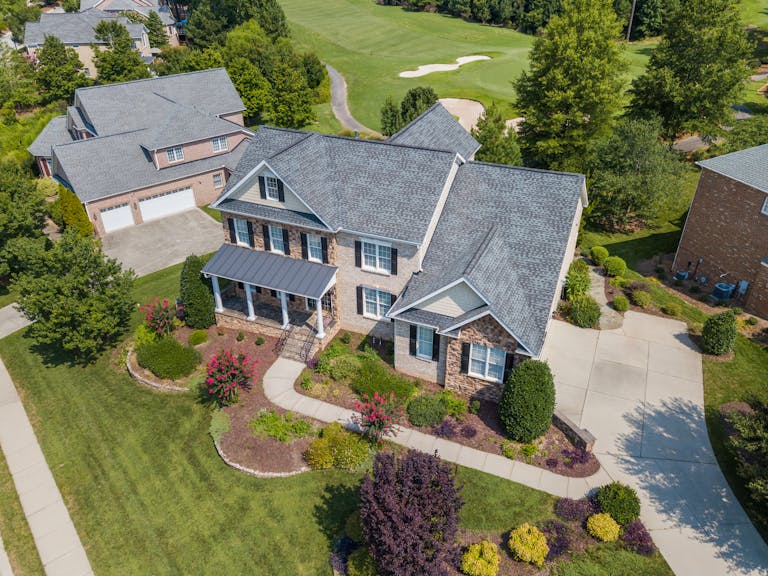Before we get into the nitty gritty details of what it costs to own a rental property in today’s market, let’s first define “property management”. Simply put, property management is the process of managing all aspects of owning a real estate asset. This includes everything from collecting rents on time and keeping track of repairs, to marketing the property and finding new tenants. A property manager will also handle any legal issues that may arise with the tenant or landlord. In this article, we’ll break down the fee’s and expenses of owning rental property as well as the duties of a landlord.
Should I Use A Property Manager?
There’s a lot that goes into managing rental properties.

What is a Landlord Responsible For?
A landlord is responsible for running the property that they are renting out. The main responsibility of landlords is to ensure that the tenants live in clean and safe conditions and that all repairs and maintenance needs are provided for the tenants. Landlords or property managers also handle all incoming rental funds and fees, schedule and track expenses for maintenance items, but most importantly maintain a legally sound lease agreement with their tenants. Landlords must be aware of local laws and regulations that apply to property management in order to avoid legal problems down the road. The best way to stay on top of all these issues is to hire an experienced, professional property manager who can help keep things running smoothly.
How Much Will I Earn From My Rental Property?
This question is usually answered by calculating your annual gross income. Once you know this figure, you can calculate your net profit using the following formula: Net Profit Gross Income – Operating Costs. It’s important to note that operating costs can include things like property taxes, property management expenses, maintenance, vacancy, and mortgage interest to name a few. The key to figuring these numbers initially is pricing your home correctly for the market it’s in.
How Do I Price My Rental Home Correctly?
Renting out properties can be a great way to earn passive income from one of the largest real estate markets in the world. However, pricing your investment property correctly is the only way to ensure a high return and reduce vacancies. Start by asking yourself questions such as “What am I trying to achieve?” and “Will my target market accept my property at this price point?”. Then look for ways to improve the quality and condition of your property. Make improvements, add amenities, and rent at the highest available rate! But be cautious, setting your rental rate too high can come with more downfalls than you’d think. Other than maintenance, the highest operating costs you could incur is vacancy.
For example:
You’ve priced your home based on these factors: Location, Zillows ‘Zestimate’, and your personal financial goals.
While these are all useful things to consider, your true rental rate may not exactly align with what the surrounding market is willing to accept. Timing is also a crucial factor to consider as many homes typically rent for less during slower Winter seasons and may sit on the market just a little longer than expected.
So lets say you put your investment property on the market in November and you assume $1800 is a fair rent based on your previous factors. After a month of low interest and subpar applications, the unit is still vacant. In this sense, its important for landlords to understand that not only have they not gained any income for this month, but they essentially lost potential income while this home sat vacant. Now would be a great time to drop the rate and attract more potential tenants. Fail to do so, and you’ll find yourself now having lost two months of rental income and you’re still paying the mortgage out of pocket. Perhaps $1600 was more accepted rental rate and potential tenants flocked to your home. Remember, a $2400 yearly deduction in rental income is better than the $3600 you’ve already lost out on vacancy over the last two months.

What’s My Home Worth?
See the value of your investment home in today’s hot rental market!
How Much Do Property Managers Charge?
Firstly, lets start by saying that there is NO STANDARD FEE STRUCTURE. Each property management firm offers different management rates; some monthly, some offer a flat rate, and some a combination of both. These are typical fees property managers charge to be on the lookout for when searching for a property manager. And while we cannot speak on others behalf, we will be able to break down general fee’s in hopes that rental investors are equipped with all information possible.
Property managers usually charge a monthly fee ranging from 8% – 15% depending on location. So if the monthly rent for your home was $1200, then the property management fee would be roughly $120 every month based on a 10% monthly management fee.
There may also be other fees property managers charge such as an advertising fee, lease fee, lease renewal fee, vacancy fee, and more. Many of these additional fee’s may be a one-time fee but every dollar counts when calculating the cost of property management. Naturally, these fees will all vary from company to company (if they even charge them) so it’s important to read your property management contract thoroughly and always ask for clarification before signing.
Is Hiring a Property Management Service Worth it?
Aside from the time saved tracking your expenses and your accounting all year, finding and scheduling great vendors in a hurry (and on a budget), answering midnight emergency calls, and property management expenses being completely tax-deductible , we’d say no. In fact, we suggest you dont hire MoveZen unless you’re looking for fast results with an unwavering strategy . Our results speak loudly and have grown louder through the COVID19 crisis. After helping thousands of property investors find their perfect tenants, you can trust an expert is on your side!











